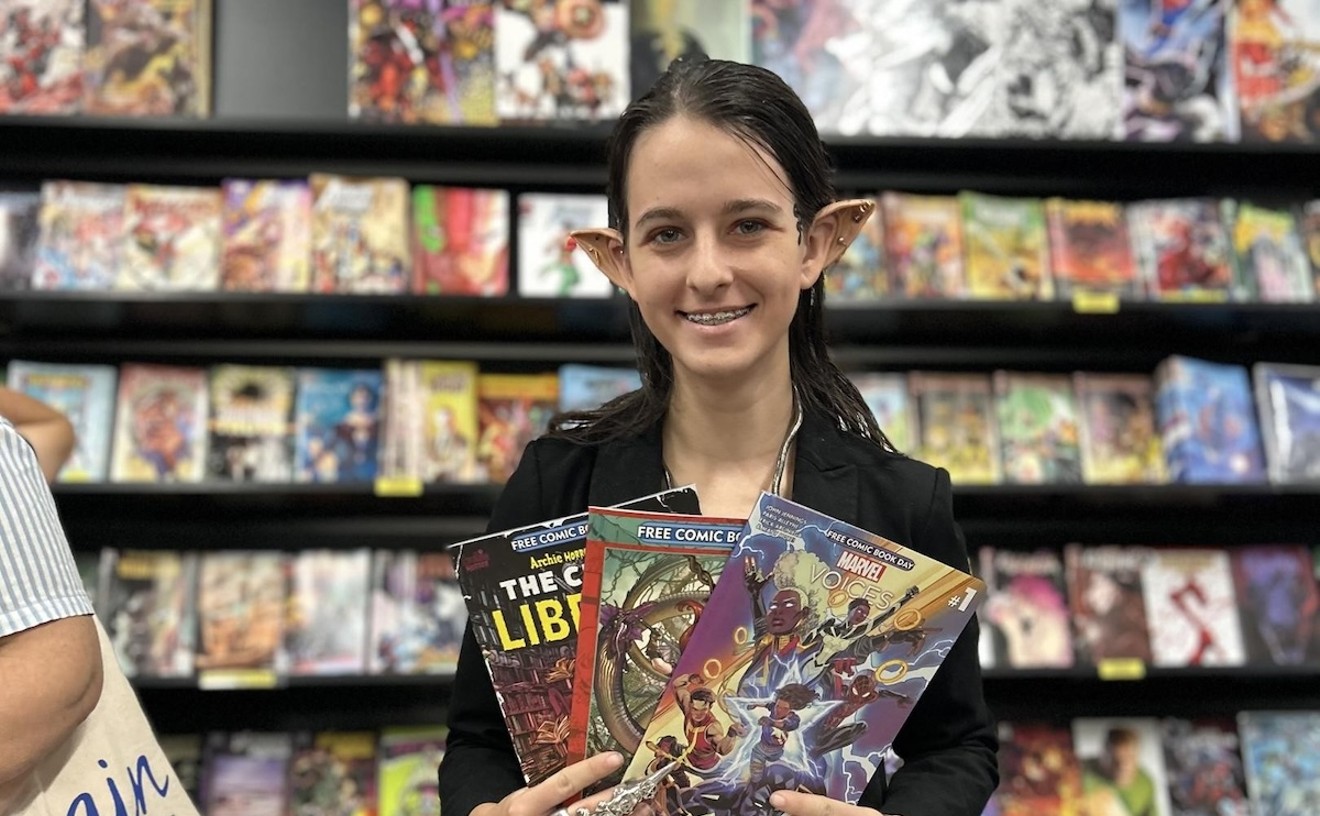For fellow writers, Jonathan Lethem needs no introduction. 1999's Motherless Brooklyn, the story of a detective with Tourette's syndrome, put Lethem on the map, but by that point, he'd already written four novels that breached the genre line between science fiction and literary fiction, a line that, thanks in large part to Lethem, has more or less disappeared. A constant advocate of the fantastic and book culture in general, Lethem has spoken up for the importance of progenitors like Philip K. Dick and Italo Calvino, and like them, he seems incapable of writing a dull plot while simultaneously delivering intellectual heft.
His newest novel, though, may be his best. At turns hilarious and heartbreaking, Chronic City (Doubleday, $27.95) takes place in a modern-day Manhattan that is nevertheless as wildly inventive as one of Calvino's invisible cities, a Manhattan where a tiger is on the loose on the Upper East Side, a secret land fill has been created as an art installation, and the atmosphere is polluted by Chinese mines that prevent the protagonist's fiancee--an astronaut--from coming home. Yet a lot of the action still takes place in a music writer's apartment, where two guys are getting high and chatting about pop culture. In short, it's awesome.
When was the last time you
were in
At the Book Fair when I was
touring for Motherless Brooklyn. I was on a bill with Michael Chabon actually,
and we were just becoming friends. So I have fond memories of it. I haven't
seen much of the city actually, but my wife comes down all the time. She's a
big
You're reading along with a
couple other New Yorkers: Ben Greenman and Michael Thomas. Are you guys
friends?
Oh really? That's cool. Yes,
it's a real neighborhood gang then. I run into [Ben and Mike] shopping for
groceries. I used to see Michael at the gym, back when I used to go to the gym.
What differentiates
it's the first one set in
I put a lot of effort into
making each novel different, but I'm especially proud of this one. It's a
special book for me. But if I had any corrective for the reviews that have come
out so far, I'd say most gloss over the fact that it's a really funny book.
When I read it aloud, people are usually laughing. It's definitely as manic and
funny as Motherless Brooklyn.
Speaking of reading, I heard
that you're reading the entire book in
Yes, not all in one sitting
though--in four different nights. It's still a marathon, and I've already fallen
behind [the pre-determined page count for each night]. The finale is in
December.
Have the same people been
coming back to hear the next installment?
A couple, but I don't think
anyone's been to every one. To be honest, if someone was at all the readings,
I'd be a little scared of them.
I noticed there are lot of
references to Norman Mailer in the book.
He's one of the singular
figures for Perkus Tooth [the afore-mentioned music writer who befriends the
protagonist, Chase Insteadman - Ed.]. For Perkus, Mailer represents the notion
of a former
City, when the
city had a wide open quality to it. Mailer's a symbol of lost freedom.
Perkus also spends all his
time surrounded by ephemeral objects--books, CD's, posters, etc. You seem to
have a lot of faith in cultural objects surviving the digital age.
I'm old enough that I've
witnessed a lot of "media revolutions" in which we were going to replace books
and TV and physical sex. Yet these things are still somehow sticking around. We
still have fax machines for god's sake.
There's a line in the
beginning of the book that struck me as very prescient of the current
recession. I know you started this book in 2004, so I was wondering if you'd
written it pre-collapse. Describing a Wall Street banker, you write, "Reggie, I
understood, was one of those who shifted the money around, trying to make it
bigger. They all deserved our pity, clearly enough. The money men, effortful and
exhausted, slumming through the gray fog."
That line was written before
the recession. I was onto something, but it didn't take a genius to see that we
were existing in a financial virtual reality.
I also heard your next book
is going to be part of Continuum Books' 33 1/3 series, and that it will be
about the 1979 Talking Heads album, Fear
of Music.
Yes, I'm just barely underway
thinking about it, while at the same time gathering material for a new,
separate novel. Growing up that record was titanic for me.
Jonathan Lethem reads from
#9).










